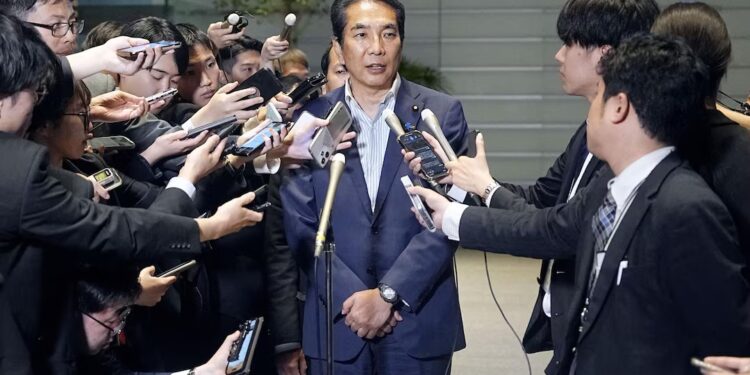Japan’s Minister of Agriculture, Forestry and Fisheries, Tetsushi Sakamoto, resigned on Wednesday after public backlash over comments revealing he did not know the price of rice because he had never purchased it himself. The incident has triggered a wave of criticism, highlighting a perceived disconnect between political elites and ordinary citizens in a country where food self-sufficiency and agricultural support remain sensitive national issues.
The controversy began earlier this week during a parliamentary session, when Sakamoto was asked to comment on the current price of a kilogram of rice. In response, he stated that he was unsure, as he had never bought rice personally. The remark, seen by many as tone-deaf, immediately went viral and was widely condemned across social media platforms and news outlets.
Facing mounting pressure from opposition parties and members of his own ruling Liberal Democratic Party, Sakamoto submitted his resignation to Prime Minister Fumio Kishida. In a brief statement, he apologised for his comments and acknowledged that his lack of familiarity with everyday necessities was inappropriate for someone charged with overseeing the nation’s agricultural sector.
Prime Minister Kishida accepted the resignation and announced that a replacement would be named shortly. He added that the government remained committed to supporting farmers and restoring public trust in the ministry. However, the incident is being viewed as a political embarrassment at a time when the government is already grappling with declining approval ratings and economic headwinds.
Japan’s agricultural sector, while shrinking in size, remains politically significant. Rice in particular holds a symbolic and practical importance, as it is not only a staple of the Japanese diet but also a key element of rural identity and national food security. The ministry has faced ongoing challenges in balancing support for ageing farmers, encouraging young entrants into agriculture, and dealing with trade liberalisation pressures.
Opposition lawmakers have seized on the gaffe as evidence of the government’s detachment from the realities of daily life. Critics argue that a minister responsible for agriculture should be intimately familiar with both the economic pressures facing farmers and the cost of basic food items. The fact that Sakamoto had never personally purchased rice was interpreted as emblematic of a wider elite bubble.
The scandal also touches on broader concerns in Japanese society over political accountability and the relevance of long-standing political dynasties. Sakamoto, a veteran lawmaker with ties to influential LDP factions, had previously served in various cabinet posts and was seen as a stable, if unremarkable, figure within the party.
His departure now adds further volatility to Kishida’s administration, which is preparing for a possible snap election later this year. With rural votes often proving decisive in close contests, the government may now find it more difficult to retain credibility in regions heavily reliant on agriculture.
While the immediate damage may be contained, the broader implications of the episode are likely to linger. For many in Japan, the notion that a high-ranking official entrusted with food policy does not know the cost of rice is more than a lapse in judgment—it is a symbol of a deeper disconnect between leadership and lived experience.
newshub finance



Recent Comments